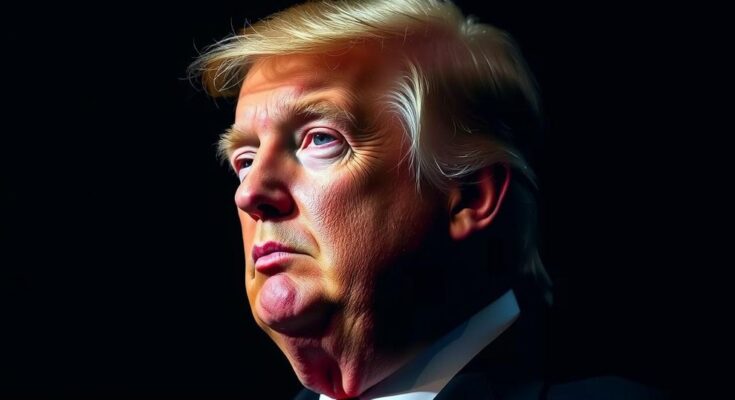Donald Trump, the President-elect of the United States, has consistently expressed skepticism about climate change, calling it a “hoax” and a “green scam.” His rhetoric emphasizes economic benefits over environmental concerns, advocating for increased fossil fuel extraction and rejecting international climate agreements like the Paris Accord. Trump’s approach has sparked significant debate about the future of U.S. climate policy and its alignment with scientific consensus.
Donald Trump, the President-elect of the United States, has consistently expressed skepticism about climate change and environmental regulations throughout his public career. From labeling climate change as a “hoax” to describing global warming as a “green scam,” Trump has made his sentiments clear during various political campaigns, particularly in his 2024 election bid. His remarks reflect a broader dismissal of the scientific consensus on climate change and a focus on prioritizing economic interests over environmental sustainability. Trump has also challenged international agreements, such as the Paris Accord, which he perceives as detrimental to American financial interests. In his campaign rhetoric, Trump has stated, “When people talk about global warming, I say the ocean is going down 100th of an inch within the next 400 years. That’s not our problem.” This exemplifies his approach that downplays environmental concerns as minor compared to other national priorities. He has pledged to dismantle what he refers to as the “new green scam,” claiming it represents one of the greatest frauds in history, while ambiguously shifting terminology from global warming to climate change in his critique. Trump’s views extend beyond climate change to include oil extraction policy, promoting policies that advocate increased drilling. He has declared, “We will drill, baby, drill,” signifying his commitment to fossil fuel extraction as part of economic growth strategies. His skepticism has been particularly evident in his opposition to the Paris Climate Agreement, where he argued that it pandered to polluters at the expense of American citizens. Trump stated, “The badly flawed Paris Climate Agreement protects the polluters, hurts Americans, and costs a fortune. NOT ON MY WATCH!” Thus, Trump’s narrative consistently revolves around a rejection of mainstream climate science, a prioritization of economic motives, and a resistance to international collaboration on climate issues. These positions have garnered both criticism and support, reflecting the polarized views on climate policy in the United States. In conclusion, Donald Trump’s public statements and policies regarding climate change portray a clear denouncement of established scientific findings and international climate agreements. His ongoing commitment to fossil fuel promotion and perceived economic benefits highlights an approach that prioritizes immediate national interests over long-term environmental considerations. This stance not only shapes domestic policy but also influences America’s role in global climate discussions.
Donald Trump’s views on climate change are pivotal in understanding current environmental and energy policies in the United States. His presidency marked a significant shift in attitudes towards climate science, with a focus on deregulation and promoting fossil fuel industries. This context is essential for evaluating his statements about climate change, where he frequently dismissed scientific evidence and targeted global climate initiatives as economically harmful to the U.S. The ongoing debates surrounding these issues highlight the larger conflict between environmental advocacy and industrial interests in the nation.
In summary, Donald Trump’s commentary and actions regarding climate change embody a broader discourse that questions the validity of climate science and prioritizes economic growth via fossil fuel exploitation. His commitment to dismantling environmental regulations and rejecting international climate agreements casts a significant influence on the future of U.S. climate policy. The ongoing engagement with climate issues reflects a deep societal divide, necessitating careful evaluation of policies and their implications for environmental sustainability.
Original Source: theprint.in




